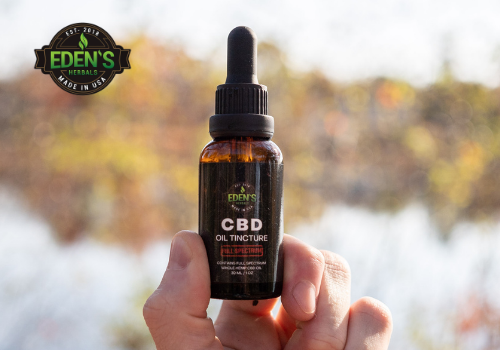 How strong is your immune system?
How strong is your immune system?
A good measurement of your immune system is how often you feel fatigued, in pain, or ill. If you are feeling this way regularly, your immune system may be compromised.
While you should see a doctor if you're feeling ill, there are some things you can do to help build a healthy immune system.
The Immune System and How to Make It Work Better
Your immune system combines the power of multiple organs, cells, and proteins in order to protect your body from toxins, harmful substances, and illness.
If your immune system is running well, then you'll quickly overcome certain illnesses, though chronic pain and diseases will burden your immune health even more.
In other cases, your body may encounter germs or viruses that it's never dealt with before, which can also challenge your immune system.
There are three main things that your immune system is built to do:
- Fight off diseases and germs like bacteria, parasites, viruses, or fungi and kick them out of your body
- Recognize when harmful substances have entered your body and neutralize them
- Fight off cancer cells and other disease-causing changes in your body
 Immune cells have special receptors that recognize foreign disease-causing germs called antigens. These live on the surfaces of bacteria, fungi, and viruses, which active immune cells. These trigger your body's immune system response.
Immune cells have special receptors that recognize foreign disease-causing germs called antigens. These live on the surfaces of bacteria, fungi, and viruses, which active immune cells. These trigger your body's immune system response.
Signs of Immunodeficiency
If you have a weak system, then you may have a primary immune disorder or immunodeficiency. This means that your body's response isn't strong or fast enough, and you may also be prone to infections and other illnesses.
Some sings of a weak immune systems include:
- Recurring and consistent problems with pneumonia, bronchitis, sinus infections, meningitis, ear infections, and skin infections
- Blood disorders, such as anemia or low platelet counts
- Inflammation of internal organs and recurring infections
- Digestive issues like nausea, diarrhea, cramping, loss of appetite, Crohn's, and more
- Slow growth or development
- Autoimmune disorders like Type 1 diabetes, rheumatoid arthritis, and lupus
 Generally, you may just constantly feel fatigued, nauseous, and/or feverish with an infection. This is due to your immune system's response, which will try to expel any germs and diseases through an upset stomach and overheating your body.
Generally, you may just constantly feel fatigued, nauseous, and/or feverish with an infection. This is due to your immune system's response, which will try to expel any germs and diseases through an upset stomach and overheating your body.
All of your energy is being used to fight off the infection.
If you feel any of the symptoms above and you haven't spoken to your doctor yet, then that should be your next step.
These tips don't replace actual medical advice from a good primary care doctor that can diagnose and treat you right away. If you're feeling especially ill all of a sudden, then don't hesitate to call 911 and get to an emergency hospital.
Ways to Boost Your Immune System and Improve Your Health
Since the immune system isn't just a single organ or cell, there are a number of ways to support your system by building up the strength of your body's response.
There are some simple things you can change your lifestyle to instantly improve your immune system. For example, if you are overweight and becoming pre-diabetic, you can support your system by avoiding sugar and trans fats.
Here are 4 great ways to improve your immunity:
 1. CBD Oil & Hemp
1. CBD Oil & Hemp
Multiple studies have shown that CBD oil from help can balance the immune system by reducing T cell activity. It also reduces B cells, T helper cells, T cytotoxic lymphocyte subsets.
CBD oil has been shown to also support the activity of natural killer cells, which aids white blood cells in fighting off cancer cells.
While more research is necessary, initial studies have seen improvement in immune regulation just by using CBD oil. It's also been approved by the FDA to treat different diseases, as well as control seizures.
2. Reduce Stress and Improve Self-Care
Did you know that cortisol, the hormone of stress, can lead to higher cancer metastasis? Your immune system responds to a lot of dangers in your system, but if you are constantly stressing your mind and body, it's more difficult for your body to target problems and heal.
Each day, you should take time to practice deep breathing and exercise. These are two of the biggest ways to reduce stress by focusing on your physical health. If have anxiety or constant headaches, that wears down your immune system, too.
It's time to pause and look at how you're healing.
Even if you just choose a short walk, it's important to move your body every day. Unless your doctor tells you to, you don't need to do hard cardio or pump iron to start a healthy workout routine.
It's important that you get 20 minutes of movement and elevate your heart rate.
 3. Spot Infection Before It's Too Late
3. Spot Infection Before It's Too Late
About 1.7 million people develop sepsis each year in America. This is a body's severe response to a bad, life-threatening infection. When you have sepsis, it may even be difficult for your body fight back at a certain point.
This is why you have to boost your immune system, especially if you are constantly dealing with aches, nausea, and fevers.
Taking supplements is a great way to improve your immunity and help your body fight off infection. However, you should always talk to a doctor first.
Some of the best vitamins and supplements to take include:
- Vitamin C
- Vitamin B6
- Vitamin E
- Vitamin D
- Folate or folic acid
- Selenium
- Iron
- Zinc
The best way to intake these vitamins and minerals is through a balanced diet. If you aren't already, you should eat a diet rich in kale, lentils, yogurt, chickpeas, avocado, carrots, sweet potatoes, sunflower seeds, and salmon or vitamin D fortified products like orange juice and cereals.
There is no shortage of foods that support the immune system!
It's not easy to ingest this long list of vitamins through diet alone. This is why a daily multivitamin or a vitamin for immune system support, can be so helpful.
The best vitamins for immune system support are natural herbal supplements. Avoid anything with extra junk such as processed sugar.
4. Aid Your Body's Inflammatory Response
Inflammation is the first sign of infection in many cases. Even if you've got all the ibuprofen in the world, you may not be able to get rid of inflammation without the help of a doctor.
There are also a number of ways to prevent inflammation from taking over.
For example, CBD oil can be used as an anti-inflammatory. Multiple studies indicate that cannabinoids can suppress inflammatory responses.
In addition, hydrogen water that is also alkaline consistently has been proven to reduce inflammation. Sports science has identified that this water helps athletes heal faster and reduce muscle fatigue as well.
If you'd like to learn more about naturally improving your immune system, contact Eden's Herbals at support@edensherbals.com today!
*These statements have not been evaluated or approved by the Food and Drug Administration and are not intended to diagnose, treat or cure any illness. Medical advice should be taken from a medical professional.
All of the articles on this site are written by 3rd party content providers, expert bloggers or doctors not directly affiliated with Eden's Herbals.
Individuals should learn the risks and side effects prior to taking CBD. Make sure to always check with a medical professional before starting any new CBD treatment or medication that is not FDA approved.


